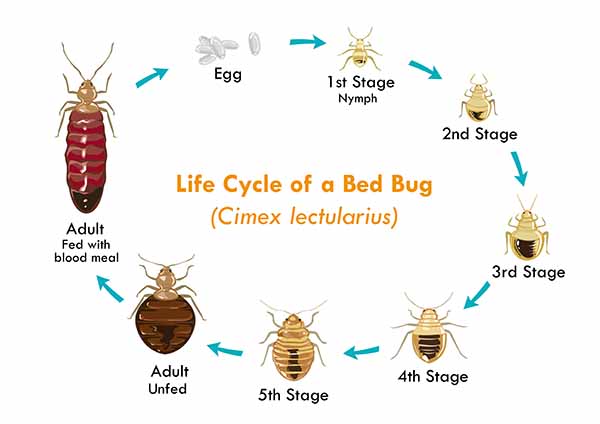

Bed bugs typically live for about 10 months, although they can survive for up to 18 months in some cases.
The lifespan of a bed bug depends on several factors, including the availability of a food source (blood from a host), the temperature and humidity of their environment, and whether they are able to mate and reproduce.
Bed bugs go through several stages of development, starting as eggs and eventually becoming adult insects.
The eggs hatch into nymphs (immature bed bugs), which go through five molts (shedding of their exoskeleton) before reaching adulthood. The nymphs require a blood meal at each stage of development in order to grow and molt.
After reaching adulthood, bed bugs can survive for several months without a blood meal, although they are more likely to die if they are unable to feed regularly.
In warm, humid conditions, bed bugs can survive for longer periods of time without feeding. In colder, drier conditions, they may become inactive or die off more quickly.
Overall, bed bugs are adaptable insects that can survive in a wide range of environments and conditions, making them difficult to eliminate once they have established a presence in a home or other structure.
Wishing you the best of health

